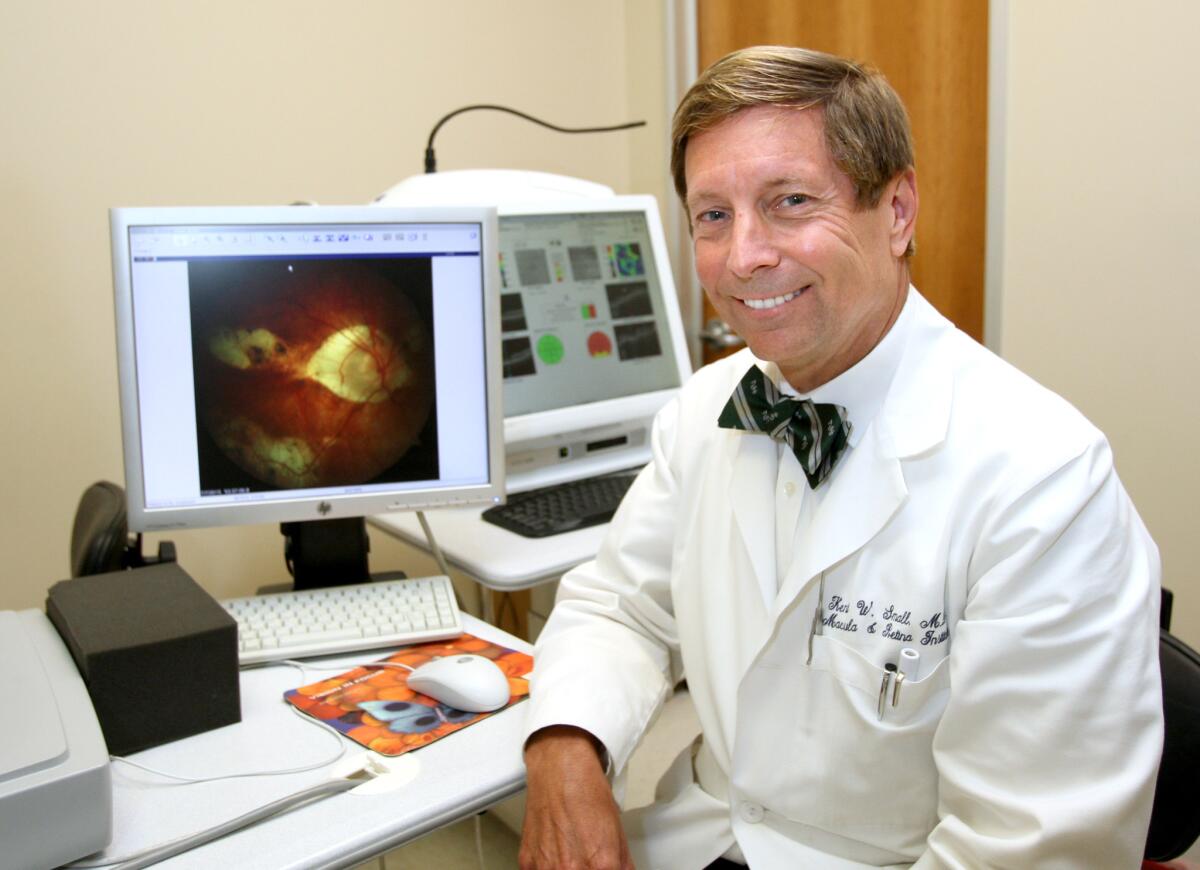Doctor sees hope in research that may someday restore vision loss

Ophthalmologist Kent Small is hopeful that his team’s recent discovery of a gene mutation will someday help restore vision loss in patients who suffer from North Carolina Macular Dystrophy.
An ophthalmologist who practices in Glendale and has researched families with macular degeneration, hopes his team’s recent discovery of a gene mutation that causes the eye disease called North Carolina Macular Dystrophy will someday help restore vision loss in patients who suffer from the disease.
North Carolina Macular Dystrophy is a type of macular degeneration that affects the macula, a small spot near the center of the retina and the part of the eye needed for sharp, central vision, which lets people see objects that are straight ahead and is vital for tasks such as reading.
The dystrophy is a hereditary condition and similar to age-related macular degeneration, which is the leading cause of blindness in the United States for people who are around 65 years old. However, macular dystrophy can affect people at a younger age.
As part of his research, Kent Small, 59, began collecting DNA samples from families with macular degeneration in 1987, and went on to gather “a huge amount of data that stood the test of time,” he said, when reached by phone this week.
As the technology used to analyze the data revolutionized in the past several years, it became faster and cheaper for Small and other scientists to evaluate the data they collected.
With help from Edwin Stone, a professor in the department of ophthalmology at the University of Iowa, and researchers at the Stephen A. Wynn Institute for Vision Research, the gene mutation that causes macular dystrophy was discovered last year in the noncoding region of DNA.
It’s unknown what specifically causes the gene mutation, Small said.
Small said he’s hopeful that scientists can someday combat the disease by potentially using stem cells to grow maculae, more than one macula, in a petri dish and then replace them in patients to restore their vision.
Small’s upcoming plans involve sharing his findings and rounding up more families to study.
Next week, he’ll serve as the keynote speaker at the Global Ophthalmology Meeting in Chicago.
“It became much more than a project,” Small said of his research. “It became a passion.”
--
Kelly Corrigan, kelly.corrigan@latimes.com
Twitter: @kellymcorrigan
